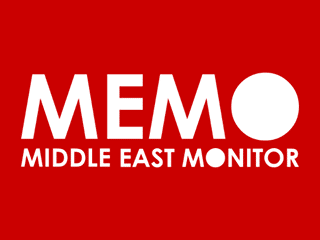Yair Golan says Israel should solidify control of Golan Heights, deal more closely with Kurds.
THE JERUSALEM POST, 11.12.2018
![]()
BY HERB KEINON
Israel should be very careful in its relationship with the Persian Gulf countries, solidify its control over the Golan Heights, and deal more closely with the Kurds, Yair Golan, until recently the IDF’s deputy chief of staff, said Tuesday.
Golan, speaking at a Jerusalem conference titled “New Realities in the Eastern Mediterranean,” said while it is encouraging to see the ongoing and developing relationship between Israel and its Gulf neighbors, “We should be very, very careful regarding the Gulf States.”
Golan cited the Bible to support his point, quoting from Kings II, in which an emissary from the Assyrian king warned Hezekiah, the king of Judah, against over-reliance on Egypt. “You rely, of all things on Egypt, that splintered reed of a staff, which enters and punctures the palm of anyone who leans on it,” the verse states.
“Yes, we can find common interests [with the Gulf states], but we should remember all the time that we really rely on a completely different set of values, and we should not overemphasize this relationship,” Golan said. He added, however, that anything Israel can do to improve these ties is “very, very important.”
Regarding the Golan Heights, he said Israel now has a “strategic opportunity” to make the Israeli presence there permanent, something he called “crucial to the security of Israel.”
He bewailed the fact that Katzrin, the largest community in the Golan Heights with some 7,000 people, grows by less than 2% a year. “This is a shame,” he said. “There should be a city of 20,000 to 25,000 people in the Golan in the next 10 years.”
Golan said Israel has three main interests concerning the Syrian front: keeping the border calm, which is something Israel can influence; preventing the transfer of more sophisticated weapons through Syria to Hezbollah, something Israel can influence but not block completely; and minimizing Iranian designs for hegemony in Syria.
Regarding Iran’s aspirations, Golan acknowledged Israel has little influence, and limiting them requires the help of both the United States and Russia.
“We need the presence of the United States in the region, mainly in Iraq and the northeastern part of Syria, as much as possible – no doubt about it,” he said. He added that with the American presence there and American support to the Kurds, “We can in a way mitigate the Iranian influence in the region.”
LIKEWISE, HE SAID, Israel needs a very good relationship with Russia, because “the destiny of Syria to a large extent will be determined by Russian activity and its willingness to minimize or limit Iran’s influence in Syria.”
Regarding Lebanon, Golan said Israel needs to “convince the world that the government of Lebanon has some responsibility for the negative things inside Lebanon.” He said it is unacceptable that the world accepts that a sovereign government “has no responsibility for all kinds of malign things happening on its soil. This is totally unacceptable and we should say it loudly and convince the world that something must be done.”
Golan said that a future war with Hezbollah, as horrible as it might be, would also give Israel an opportunity to “defeat the Iranian project in Lebanon.” This is something Israel should focus on and “do in the most decisive way in any future conflict,” he said.
According to Golan, the Kurds in Syria and Iraq are a “new and almost sovereign entity in the region,” and a moderate element with which Israel should work to expand their relationship “as much as possible.” This is also something that would help mitigate Iran’s influence as well, he said.
Regarding the Palestinian issue, Golan said that Israel’s approach to the matter can be summed up as those who are in favor of separation from the Palestinians and those who are in favor of annexing the territories.
The tension between these two approaches defines much of the internal conflicts in Israel, he said. “Just managing or handling the conflict is probably not enough for the future. When I look at the future, Israel should make up its mind, what to choose, where are we headed, in order to stabilize the situation.”
Golan said the most significant external threat facing Israel comes from Iran and its proxies, but that Israel has “all the possible tools to deal with this threat.”
The second challenge, he said, is the one imposed by the Palestinians. He said that threat not only influences security, but it will also define the nature and “prospects of Israel’s future.”
“I believe the destiny of Israel will be determined more in Gaza, Ramallah and Jerusalem than in Tehran, Damascus and Beirut,” he said.
The conference was sponsored by the Jerusalem Institute for Strategic Studies and B’nai B’rith International.
THE JERUSALEM POST, 11.12.2018






 - בניית אתרים
- בניית אתרים